I threw a picnic in our garden the other day. We were busy with all…
Who and what gives whisky and wine its flavour?
The quick answer is wood and the tradition of cooperage.
One would think, only the most expensive alcohol is stored in huge casks these days and everything else is stored in huge metal tanks, just like in breweries or in modern wineries. Fortunately, the “uisque beatha”, alias whisky, is still stored in oak casks.
When I studied logistics, one of my teachers said never to underestimate warehouse workers, because if they do not do the work properly, the rest of the Supply Chain won’t either. I had a similar impression about whisky: if no casks, no whisky. Casks are as important as the clear water, or the distillery itself. But who made casks?
The Coopers
This is all I knew about coopers or cooperage, nothing else. But there is so much more about this occupation to learn than I have ever thought. It was interesting to learn that not only wine and whisky was stored in casks in old days, but butter, milk and salted herrings, to name a few. No wonder that coopers were needed everywhere and were respected and well paid. Apart from casks, coopers also made tubs, baskets and buckets.
But let’s have a look at Speyside Cooperage, in Craigellachie, Speyside the heart of whisky production in Scotland, although whisky is produced in many regions of Scotland. We popped in during our Scotland trip, although we did not plan it, but it was well worth a visit. In this cooperage they repair 150,000 casks a year. Yes, repair because both the whisky and the wine industry prefers to use used casks, not only because they are cheaper but because they provide even better flavours to the wine and/or whisky.
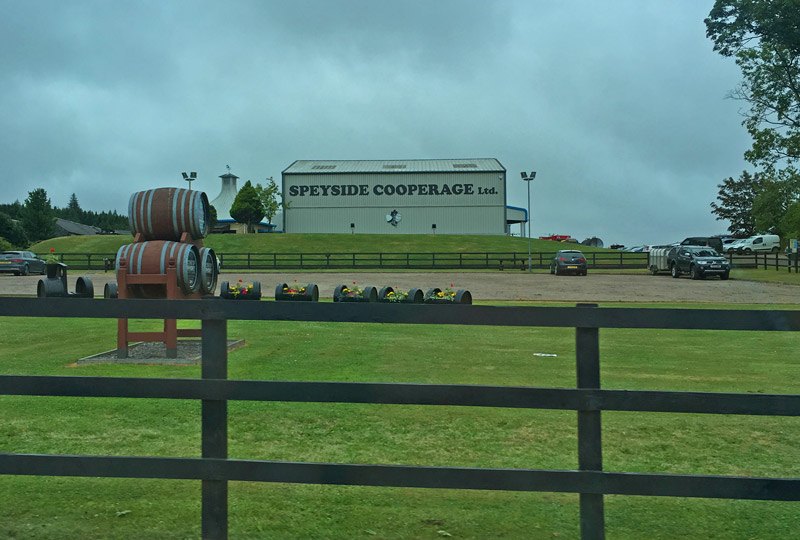
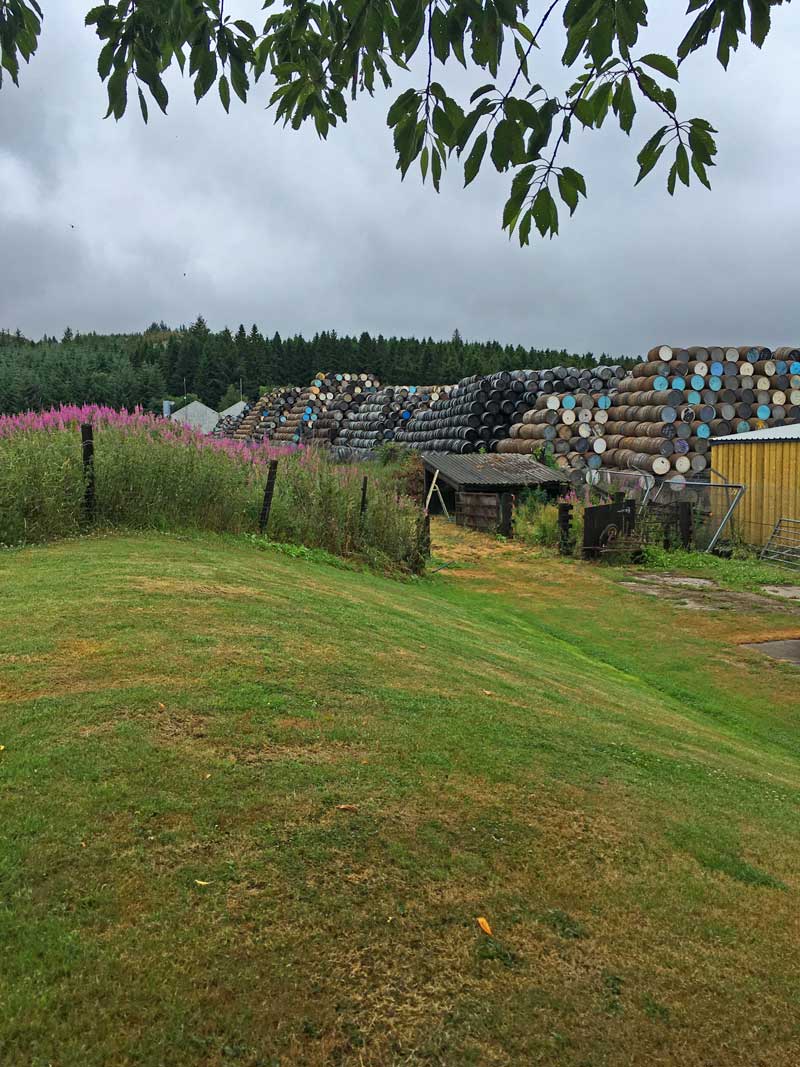
By the way, whisky or whiskey? Which one is correct?
Both, however, “whiskey” is the spelling in America and Ireland and “whisky” in all other producing countries. Scottish malt whisky is always whisky.
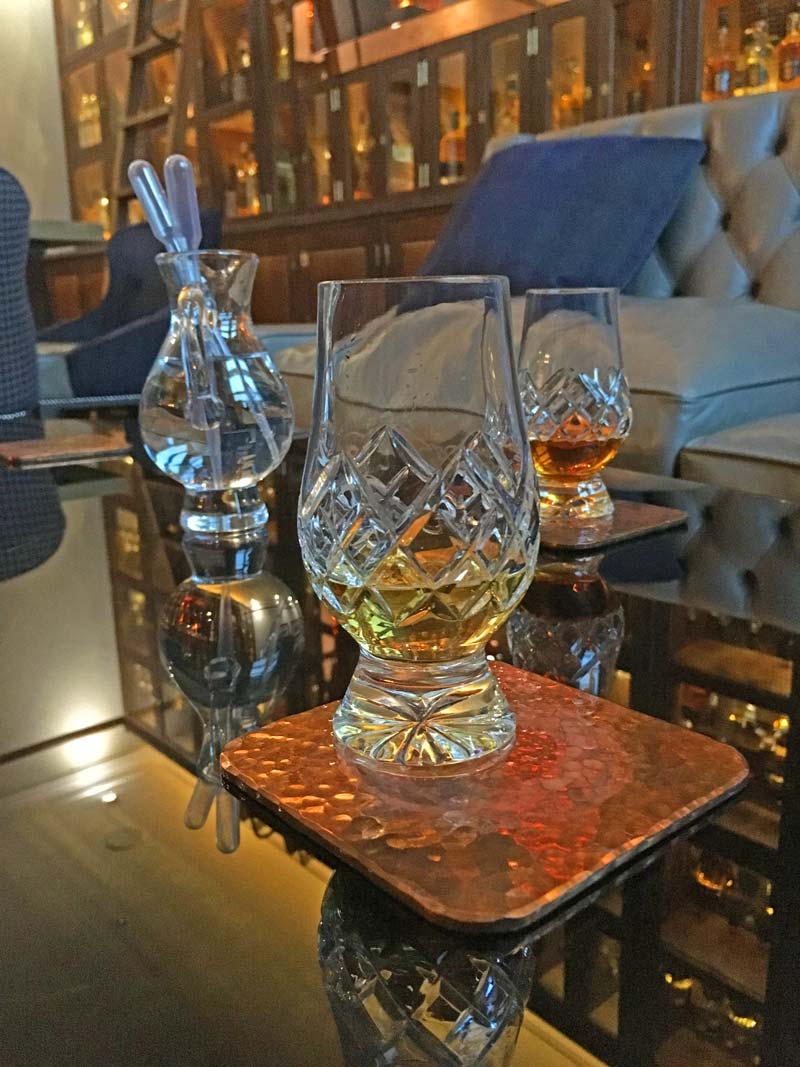
The process
There are 14 coopers working in the cooperage and they are paid on piecework, which means they want to repair as many casks a day as they can. This number is between 25 and 30 normally. The process has not really changed since the old days: they mainly work by hands using tools, however some operations are done by machinery.
Casks are being delivered to the workshop from the pyramids on the yard where they can store up to 200,000 casks. Coopers pick them up one by one and they always have to take what is next to be fair with each other. The metal hoops are removed by a machine, then the coopers brush the casks and inspect them looking for damage and they mark the damaged staves with chalk. Then they repair the casks, replacing any damaged staves etc and the casks go for charring and steaming. This process softens the wood which makes it malleable for finishing, but also helps to get rid of any contamination or bugs and the pores of the wood open and which allows the whisky can pick up more flavour. Heads (lids) are produced in a separate workshop and are assembled using staves that are fixed together with a pin (dowel) and hole assembly, using straw between the staves for insulation. Then it is cut round with a beveled edge for providing a good seal. Interestingly, workers producing heads are not coopers, they could not make a barrel, but coopers know and learn how to make heads.
Coopers put a sticker on each casks they repaired and then they are moved to the Testing area for quality inspection. The inspector puts some water in the cask and fills it with compressed air. Should the cask not been properly repaired, the water and air would leek. If this happens, the cask goes back for another repair to the same cooper. I did ask our tour guide although I was almost 100 percent sure about the answer: Coopers do not like the quality inspector. 🙂
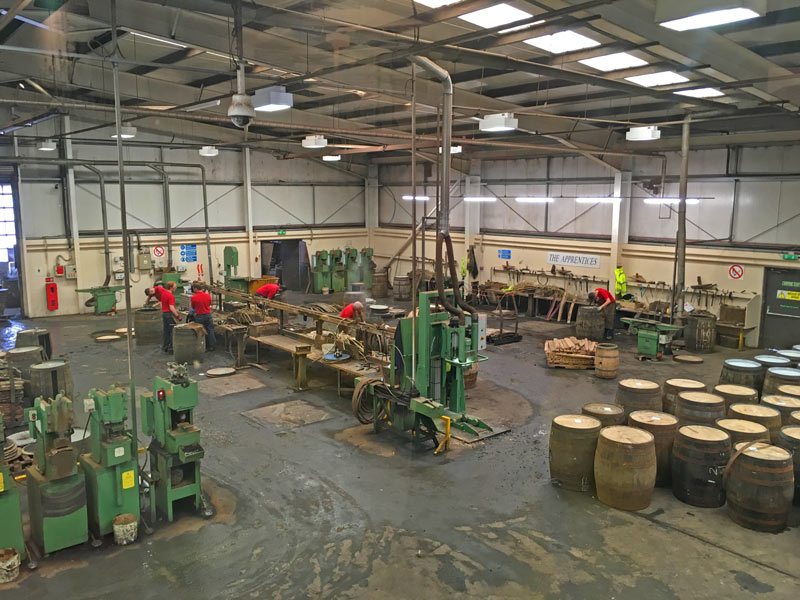
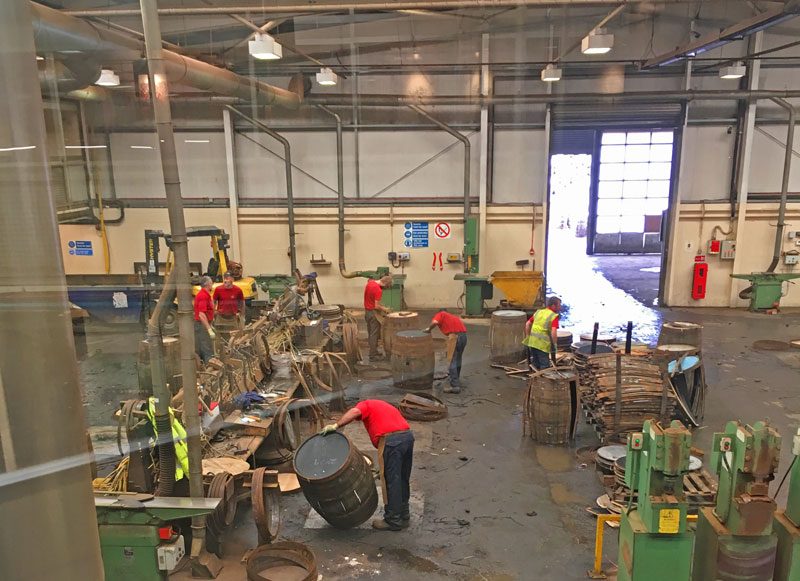
An extra surprise at the cooperage…
When our young Scottish tour guide explained something, I did not understand one word and I told him where I was from. His eyes lit up and said proudly that one of their coopers is from my home country, Hungary and called Attila. I could hardly believe that in the middle of Scotland where no one ever goes, there is a Hungarian cooper working in a cooperage. What is the chance of that? On a side note, I was really proud to be honest. I managed to talk to him for a few minutes and asked him the question that interested me the most:
Is there any difference the way this occupation is taught in Scotland and in Hungary?
Yes. In Scotland they have to learn it for 5 years and during this period they learn thoroughly how to repair casks. In Hungary the apprentice takes 3 years, but they are not allowed to use any machinery in the first year, only tools. They have to learn how to shave and polish staves and to build a cask from scratch. What I did forgot to ask whether in Hungary coopers passing their final test are too rolled around the workshop sitting in a barrel. Because this is what they do in Scotland! The long standing traditions of cooperage are held very closely and with huge pride between all coopers.
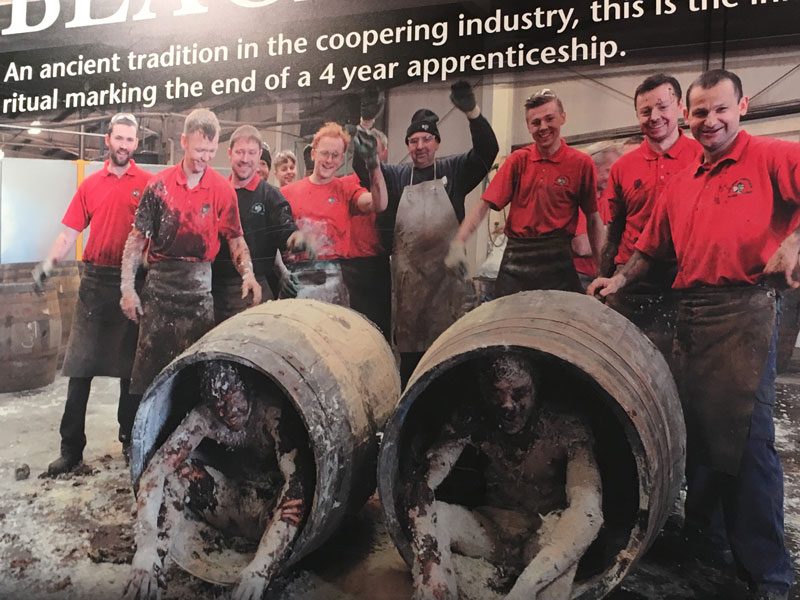
The wood
I also wanted to know what wood they use for casks. Even if they only repair casks those old casks must have been built at some stage, somewhere. The material mainly used is American oak which they cut as shown in the below photograph. They leave it to dry for a year but sometimes for 2 years. Staves must be tapered, beveled and groomed to hovel shape. Normally a cask is made of 29-33 staves.
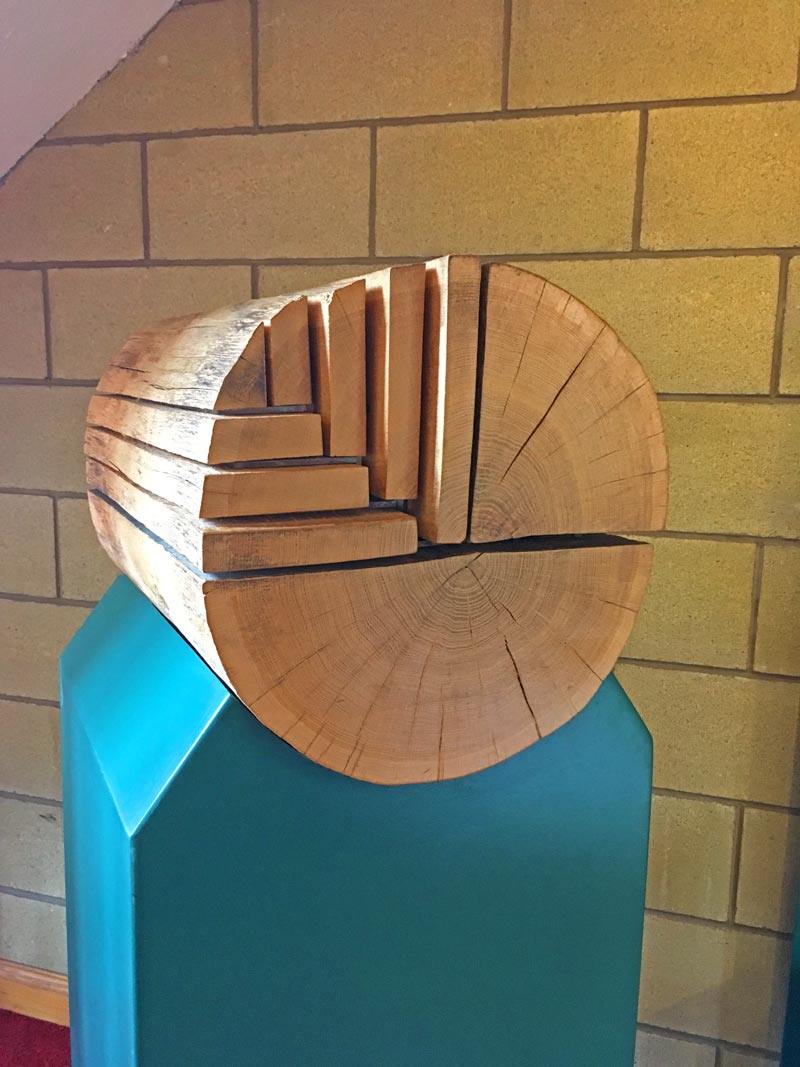
What about marks?
Earlier it was a tradition to burn the cooper’s mark into the barrel but they don’t do this anymore as these barrels are circulating in the world and used by several companies. Upon request they are able to do that, but if a mark is required it is done by the destillery itself.
Do I like whisky?
No, not really. Bill who ran a whisky shop before explained there are different flavours of whisky which I was not aware of. So there are fruity, smokey, peaty and salty flavoured whiskies and all combinations in between, you just have to find the one you like. Well, you must be really determined to find the one you like and keep on tasting as many as seen on the photo below… Additionally once a whisky is bottled it no longer ages. The aging is done in the cask. Over the years the cask allows the whisky or wine to breath and the barrel will lose approximately 5% of its volume in the 1st year and 2% per year thereafter through evaporation through the wood. This is known as the “Angles Share”. As the aging takes place and the losses mount this gives rise to the increasing value of the contents of the cask.
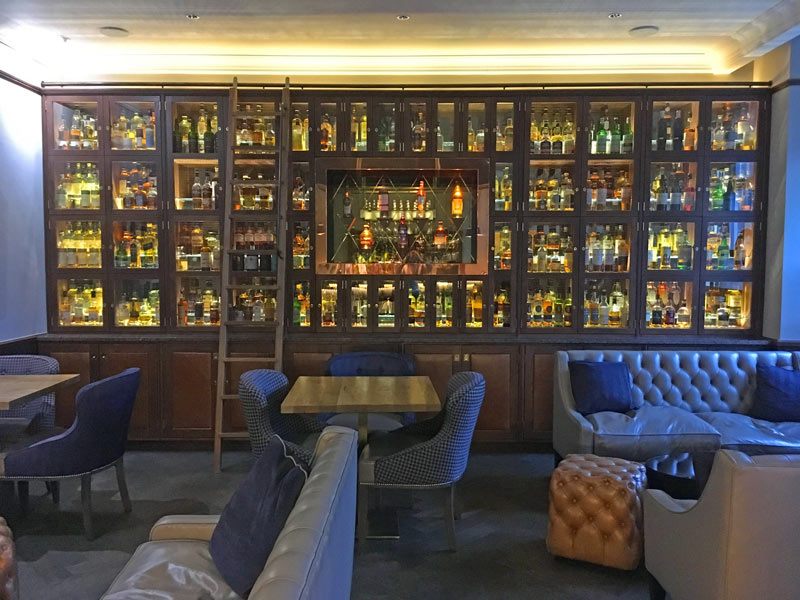
~
I was thinking whether I steal the cooperage’s thunder by writing this article and sharing my wonderful experience but I realised whilst I was writing how much more information there is in the cooperage. Not only that, you can’t beat the short video with special effect that you can watch there and the watching the coopers working in the workshop. If you can, go and see because it is great to see such an old occupation in action. It is well worth it.
Share this:

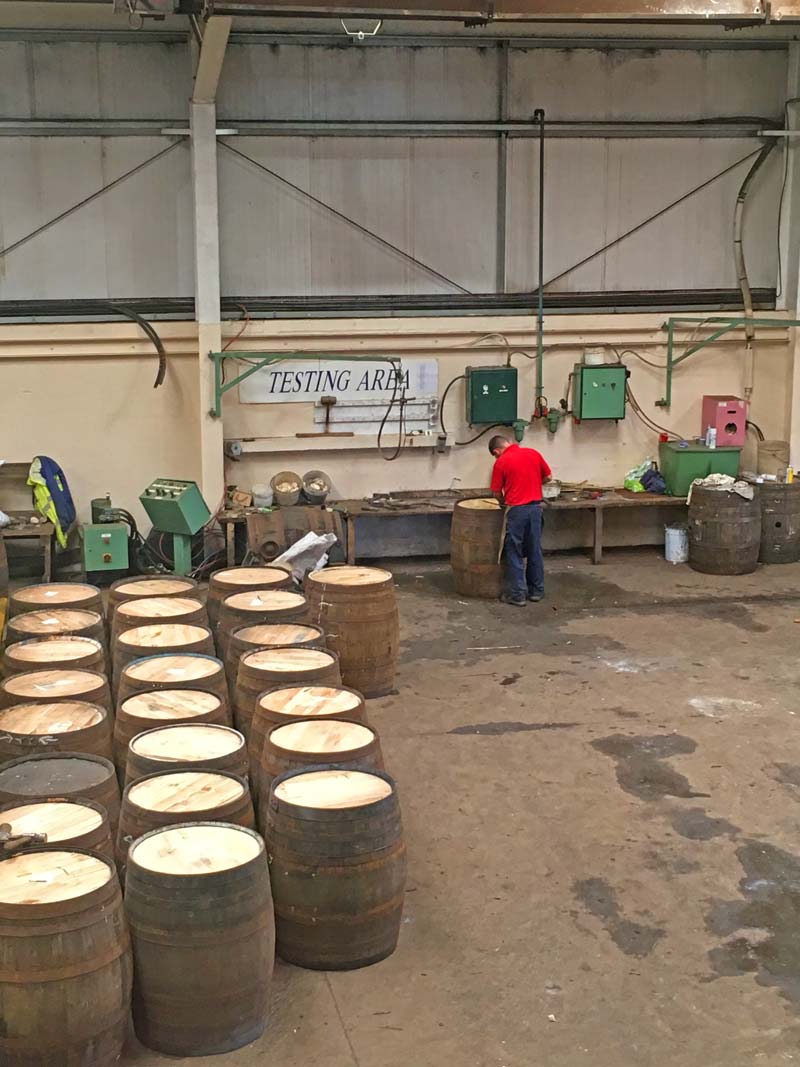
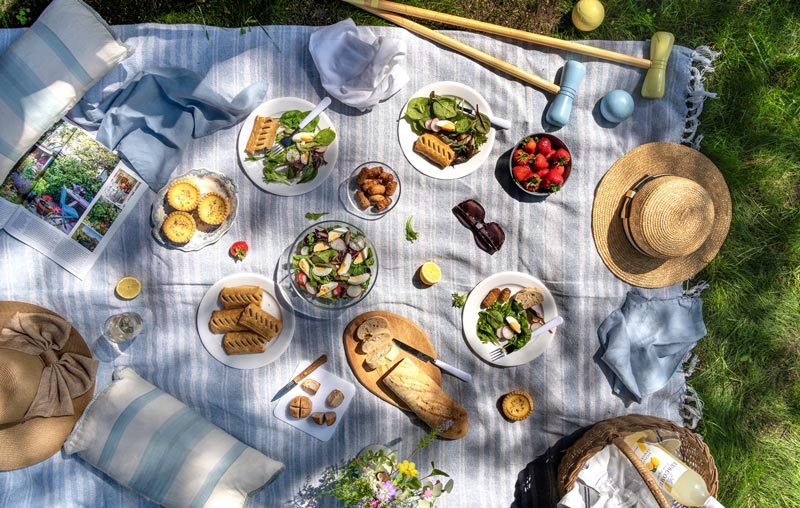

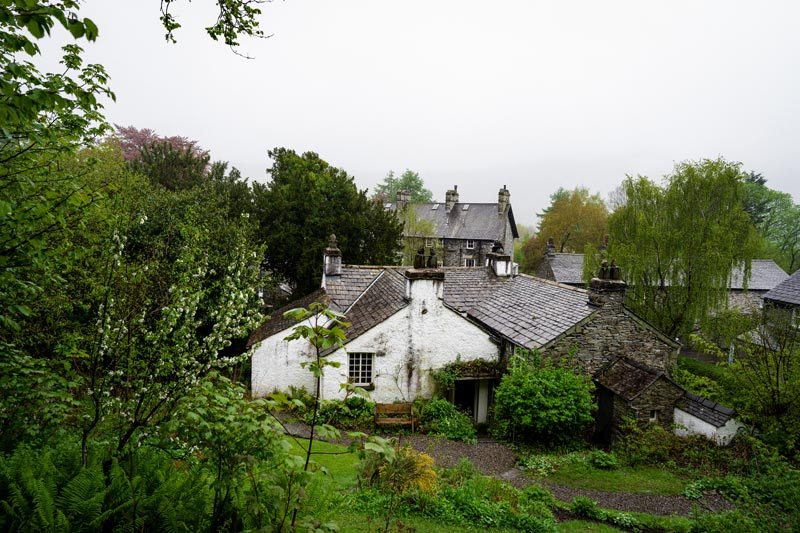
Comments (0)